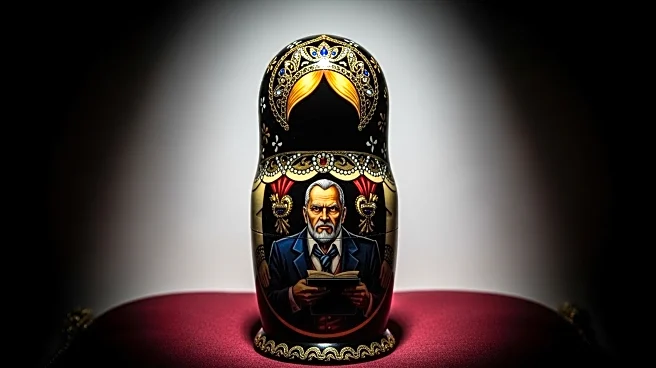What's Happening?
The Wizard of the Kremlin, directed by Olivier Assayas, premiered at the Venice Film Festival, featuring Jude Law as Vladimir Putin. The film explores the rise of Putin through the eyes of Vadim Baranov, played by Paul Dano, a fictional spin doctor who aids Putin's ascent to power. Critics have given mixed reviews, with some praising Law's performance for capturing Putin's persona, while others criticize the film's lack of depth and engaging narrative. The film is adapted from Giuliano da Empoli's novel and produced by Curiosa Films and Gaumont.
Why It's Important?
The film's portrayal of Putin's rise to power offers a cinematic reflection on political dynamics and the influence of media and advisors in shaping political figures. Jude Law's performance as Putin is significant as it brings attention to the complexities of political leadership and the role of advisors in governance. The mixed reviews highlight the challenges of dramatizing real-world political events and the expectations of audiences for insightful narratives. This film could influence public perception of political figures and the entertainment industry's approach to political dramas.
What's Next?
The Wizard of the Kremlin may spark discussions on the portrayal of political figures in media and the ethical considerations of dramatizing real-life events. The film's reception could impact future projects by Assayas and the cast, as well as influence the direction of political dramas in cinema. Audience reactions and box office performance will likely determine the film's success and its role in shaping political discourse through entertainment.
Beyond the Headlines
The film raises questions about the ethical implications of portraying real political figures and events, potentially affecting public perception and historical narratives. It also highlights the cultural impact of cinema in shaping political discourse and the responsibilities of filmmakers in representing complex political realities.











